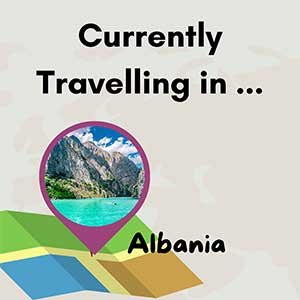The good, the bad and the ugly. And the amazing as well. I will share with you all the valuable and practical lessons learned in my first year of blogging.
Not so much of a motivational speech on why you should start a blog. Chances are if you are reading this post, you already set your mind on it. I will give it to you straight. I will list the mistakes, the stepping stones and the difficulties – all the practical lessons learnt in my First Year of Blogging. Things I wish I knew when I first started my blog.
I take pride and joy in reading all the ‘for dummies’ guides. There is no shame in not knowing what to do when you are just starting. Everyone has to begin somewhere. Trust me! When I launched my blog – I could serve as a definition of a dummy.
Definition of dummy (Entry 1 of 1)
- Pati, a person who thinks she knows how to start and run a blog

Do you want to know what to expect when starting a blog? How hard it is? What’s involved and how much there is to learn? If you do, then stick around 🙂 Below you will find my practical lessons learned in my first year of blogging
There are hundreds of YouTube videos telling you how easy it is to start a blog. There are blog articles and tutorials. But there is no greater teacher than practice. You will learn the most by just doing it.
And you will never be ready enough. So just go for it!
When I started – I knew nothing. I watched tons of YouTube tutorials and read articles and blogs. Purchased my domain and hosting and there I went….
Slowly.
It has now been a year, and it feels like there is so much more to do and to improve. The articles, writing, SEO, traffic and marketing. The list is never-ending. But I will tell you a secret – as overwhelming as it sounds – I love it! Doing something you love and learning new skills in a process is priceless.
So without further ado, here are all the truly practical lessons learnt in my first year of blogging
1. Don’t trust everything you hear on YouTube
Most of what I know, I have learnt from YouTube tutorials. I learnt how to start and set up the website. How to buy a domain, choose a hosting company, how to navigate around WordPress. I also learn about SEO, promotion, all the available tools like WP themes and drag-and-drop builders like Elementor. My first year of blogging was divided between creating this website and watching Youtube tutorials.
YouTube’s tutorials are amazing! You will be able to follow step-by-step instructions, which is so much easier than reading a manual. This channel is a priceless source of information.
However… Please keep in mind that often YouTubers are being paid for promoting a specific product. There is nothing wrong with it. And it doesn’t mean they don’t believe in this product.
But always make your own thorough research. Only because a YouTuber or a blogger is recommending this particular web hosting company or email marketing platform- it doesn’t mean that it is the best for you. Read on-line reviews written by real users. Ask on forums. And mostly, don’t overpay for a product that you will not need of fully use.
If your website is small – you don’t need a powerful managed hosting company. Some free plugins are as good as the paid ones. It will depend on how big your website is and where do you want to take it in the future. But I genuinely advice to start small.
I post a lot of images. My site is growing as I constantly add content. Thus, I decided to get a paid cache plugin. But I went with a free one at first, and it was perfectly fine at the time. Don’t splash your money on fancy stuff you might not need only because someone recommends it.
Saying that – there is a tone of amazing resources that YouTube offers. And this literally was my University over last year.
Here are some of my favourites:
If you are thinking of starting or running a niche blog – the Income School is fantastic!
For all tech-related problems – WP Crafter. They offer simple to follow tutorial videos covering simple topics like installing and maintaining WordPress, and more advanced videos for WordPress developers. This channel was with me throughout my whole journey.
For tutorials on how to build a WordPress website from scratch, Elementor tutorials and loads more, I recommend Create a Pro Website and Ferdy Korpershoek.
Darrel Wilson’s channel is also great for tutorials, especially for eCommerce, affiliate websites, but also for WordPress and page builders tutorials.
2. Making mistakes will cost you money
And it’s fine. But sometimes avoidable.

In my first year of blogging, I had to learn everything. I had no idea what hosting even is when I first started. So I did very strange research – until now I don’t know what I was thinking.
Same goes for a theme. I must admit I’m not a graphic designer and at first, I found it really difficult to design my website. So I have chosen a premium theme. It was a great theme, and my website looked good from day one. But I was stuck with the design. As time passed, I wanted to add blocks, and I was very limited as to what I can change.
We grow, and we learn. It is important to choose a theme that will grow with you.
Since then, I have switched my hosting and I use a simple, very customizable theme. And I invested in a builder which I will be able to use whatever theme I will choose in the future. I have completely redesigned my site.
I paid for things I didn’t need or were not serving me well. Just to find out that I could get the same thing for free. Or had to pay again, for a better product. But this is part of the process. I didn’t know any better back then.
What is more important is to have a vision for your blog. And make research. If you like a particular product – go for it.
Sometimes making wrong decisions will cost you money. But the lessons drawn from it, will be much more valuable.
Tip: If you think you will want to add and change things as you go, that you will never be truly satisfied and want to have the freedom to redesign- I suggest a free theme like Astra or Ocean WP. They also have great templates you can use for your home page. I use Elementor builder to add sections and design my post layouts. I can’t see myself changing anytime soon.
3. How much does it really cost to start and run a blog?
You can purchase your domain for as little as around $10 for a year. And as much as it doesn’t matter where you are going to register your domain – it really matters where you are getting your hosting from.
DO A THOROUGH RESEARCH. If something is really cheap, there must be a reason. However – if your website is small and you are just starting up, most hosting companies will be fine. Also cheap or free is not always bad that’s why dedicating your time to thorough research is the most valuable lesson I learned in my first year of blogging.
What you really want, is the great customer support (trust me, you will use it!) and moderately good speed. Until your website is very large, and maybe even then – you don’t need to be paying big bucks.
It is not a lifetime contract. You can always change or upgrade later.
Hosting prices vary. But I would say a decent hosting company will charge you from around $4 a month for their basic plan – that’s excluding any add-ons like SSL certificate, security or backups. A basic hosting with all those essential add-ons will start from around $10 per month (charged yearly).
And really, you could stop there. Domain and hosting are the only things you need to pay for. Then, it depends how far you want to take your website, how much content and images/media you will be adding.
Most of the good plugins are free. Yoest SEO, WP-Cache, Easy Table of Contents – all free and great plugins I used, or I’m still using now.
What I personally invested in, is a good quality cache plugin. I also upgraded Elementor builder to a pro version, but this is mainly to upgrade my design. But you won’t need to do this if you are on a budget – there is a lot you can do with a free version.
Here is the list of all the free resources you can use to create and successfully run your blog:
Media and social marketing management:
- Stock photos – Unsplash, Pexels, Pixabay – All free and with great selection. Dreamstime is my go-to website for paid resources. But only if all other ones failed.
- Canva – Free to use and great for your Pinterest pins, Instagram stories, Infographics, logo making and so much more!
- Short Pixel – For image compression. I have not used it personally as I use Adobe Photoshop for my image optimization. I would not purchase it just for that, however. There are free or cheaper ways of doing it, and I heard many good opinions about Short Pixel. It is free for up to 100 images smaller than 10MG.
- Tailwind – Great for Pinterest scheduling. Buffer – for all other Social Media.
- Email marketing – MailChimp, Sendinblue, Mailerlite are free to use within certain limitations. Great to start with and to build your email subscription.
Writing aids
- Grammarly or ProWritingAid – I could not live without it. Not only for spell checking. Both tools will also check for grammar mistakes and overall structure.
- Hemingway Editor – Also great writing aid. This app will help you fine-tune your content and cut out all the unnecessary fluff. It highlights lengthy, complex sentences and common errors.
- Google Docs – This is where I store all my drafts and ready articles. Never failed me. While others did.
- Answer the Public for keyword research – You will need this! Once you got your teeth into SEO, you will appreciate the weight of this resource.
- Keywords everywhere – Also great tool for Keyword research.
Analytics and website maintenance
- GT Metrix and Pingdom – For website speed and metrics.
- Google Analytics – Absolutely essential. It offers insight into your website’s performance, traffic acquisition, and audience.
- Ubersuggest – A keyword research tool that uses Google autocomplete to produce good keyword ideas. I, however, use it mostly to see my SEO metrics, what for and if I’m ranking at all, and to see what keywords my competitors are ranking for as well.
Paid resources I am using:
- Adobe – I use both Photoshop and Lightroom for my photography hence this became a photo editing tool for my blog as well. I pay €24 a month.
- WP Rocket cache plugin – with the amount of content, images, JavaScript and so on happening on my site – a good cache plugin was a brilliant investment. If you are looking for an upgrade – I personally recommend this one. It is $49 for one website for one year.
- Elementor Pro – The free version is amazing. But I wanted to have access to more options. Elementor is a great page builder but with the pro version you also get a theme builder which was a massive selling point for me. I don’t regret. Also, $49 for one website for one year.
4. Running a blog is time consuming
It really takes time to build a successful and well-functioning blog or website. It involves research (this sometimes takes longer than writing itself), numerous editing, and of course writing.
Then, you will spend hours maintaining the website, working on marketing and promotion, design and learning new skills.
It’s a full-time job. Because when you are not actively working on your blog, you are thinking about it. If you are not creating the content, you are trying to figure out what are you going to write about next. The moment I press ‘publish’ button, I start thinking about my next post.
It all boils down to a passion. If you don’t love what you do, or at least are extremely determined – it will be hard to put all that work into something that might take years to bring the income. If ever.
5. Running a blog is more than just writing – but it’s mainly about writing

You can have the most beautiful website layout and design, but if your content is not valuable for the reader – no one will read it.
I made this mistake. I spent far too much time designing my website and forgot what is the reason I wanted to start a blog. To give value to my reader.
There are 2 most important aspects of content creation – quantity and quality. You don’t need to post an article every single day. Often it’s impossible or simply unrealistic. But you need to post articles regularly. You don’t want to leave your reader waiting 2 months for a new post. They will get bored and go somewhere else.
Yet quality is the most important aspect of your content. It is all about the reader. You want your article to be interesting, captivating, informative and engaging. And well written with no spelling or grammar mistakes.
I find this extremely hard given English is not my first language. I re-edit my posts multiple times and I use all possible resources to make sure I don’t annoy my readers with silly errors. It gets better. And you can always use your friends to proofread it for you. There is nothing better than a fresh pair of eyes.
Give value in your content.
6. Write for the reader
This is one of the most valuable lessons learned in my first year of blogging. Write for the reader.
Most of the time, if anyone will read your post, it is because they need something from your article. They need the information, entertainment, mood-boosting – whatever it is that you are providing. But write for them – not for yourself.
I constantly ask myself – if I was looking for the particular information, what would I want to find. What information would be helpful?
It’s useful to visualize your potential reader and try to imagine what content would this person search for. What information would be most valuable?
Then write it.
This is how Google’s engine works. People look for something and Google provides the answer. You want the answer to be in your blog post.
You can also imagine a person you know, like a friend or family member. And write for them. If I had a friend who wanted to start a blog, what advice would I give to them? It’s all in this post.
7. You learn all the time
You are not a techie? Oh well, this will definitely change. Page Speed, Java Script, image optimization, plugins. No, don’t worry. You won’t have to learn how to code. It is all drag and drop these days.
But you need to know what resources your website uses. The fancier it is, the slower it gets. And speed matters. For both user’s experience and your new best friend – Google. You will have to make your website functional and easy to navigate around.
This is an essential knowledge you will have to gain in order to run a successful blog. But let tell you a secret – it can be pretty enjoyable too 🙂
Running a blog involves many other skills. Marketing, writing, business – the list goes on.
But don’t despair – internet is full of various resources.
Recognize your development areas and learn. Take courses. Skills Share and Udemy are great and cheap resources for online learning. And of course, the biggest library in the world – the Internet.
8. You will need to seek support. And you should!
One of the most important lessons I learnt in my first year of blogging:
Seek support and help from others like you. It’s hard to do it alone. And let me guess – not too many of your friends or family member would be able to give you much practical advice? You will need to reach out to those who can. There are thousands of people who used to be exactly where you are right now. They will help and share their advice.
A great source of community-driven advice is Reddit. I spend more time on Reddit than on any other social media since I realized how helpful and encouraging this community is. It is also a great place to find a topic to write about. See what questions people are asking or what they are struggling with – and write an article that will solve those problems.
I also like using Facebook support forums. My favourite is WPBeginner Engage – WordPress Help for Non-Techies. I had so many questions answered and problems solved through this page that it is now an invaluable source of support for me.
Whatever your niche or your blog topic is – join forums and discussions relevant to that. Join the community of people like you. It will make you feel so much less lonely. Building your dream can get very lonely if no one around you understands what is it that you are trying to accomplish.
9. Learn all about marketing and find any opportunity to promote your blog. Don’t be a spammer though.
It is crucial to market your content to the masses. It will not happen on its own. Take advantage of social media. If this is not something you are into – you will have to change that. If you want to build a community and following, this is the best way.

Share your posts. But be useful and resourceful. Don’t spam forums with your content without truly contributing first.
Especially Reddit. I actually got banned from one of the subreddit’s when I shared one of my posts. Even though it was very relevant. Follow the rules and be respectful. I learnt the hard way.
Another great way to get noticed is to guest post on other blogs or website. And of course, there is an entire array of social platforms like Instagram, Pinterest or even TikTok.
10. Make friends with SEO
In case you didn’t know – SEO stands for search engine optimization. It simply means improving your site to increase its visibility for relevant searches.
You could write the most amazing article ever. But if Google won’t rank it – no one apart, apart from your mum and few patient friends will read it. Probably not even your mom. True for me.
It is not easy to learn, and I still struggle myself. You just want to let your creative juices flow. You don’t want to think of how many times you inserted a key word into your text or your heading?
But you will have to. Otherwise, your beautiful articles will never find the audience.
Unfortunately, it is what it is. And as much as writing great content is crucial, just writing on its own will not be enough.
One of the first articles I wrote was ‘Istanbul Express’. It’s a story of how I was denied entry on a plane to Thailand. It’s a good story and very important for me. But I just wrote it and never really optimized it for search engines. Guess what? No one read it. Google didn’t rank, it and it got buried in the depth of the Internet.
It’s a little like training for a marathon for a year and then not attending. You are fit, and you could definitely do it – but neither you nor anyone else will ever know it.
11. Have a growth mindset
Often a make or break. A difference between those who make it and those who don’t.
A growth mindset is about our attitude towards failure. Our self-theories about intelligence have a profound influence on motivation to learn. People who believe that their success depends on time and effort are more likely to succeed simply because they are more likely not to give up or get discouraged.
On the opposite spectrum – there is a fixed mindset.
When you were at school and failed at the test, often it would make you feel like a failure. If you failed at a particular subject, you would assume that it’s your weakness and would never consider this area as one that would bring you success.
Stanford professor Carol Dweck conducted a study on students’ attitude to failure. She and her colleagues observed how some children found failure devastating, while some others rebounded and continued working.
Students that believed they can get smarter by working hard and learning more, were more likely to achieve greater success. However, children who believed that being smart is a status that cannot be changed or developed – would be more likely to give up and get discouraged by the smallest setback.
Dweck’s research challenges the common belief that intelligent people are born smart. Some people view intelligence as a fixed trait, while others embrace it as a quality that can be expanded. I am on this side. I believe we can learn anything, and with hard work and perseverance – we can achieve anything.
Recent progress in neuroscience and brain plasticity have shown that the brain is far more malleable than we have thought. Connectivity between neurons can change with experience and with practice, neural networks grow new connections, strengthen existing ones, and build insulation that speeds the transmission of impulses. This simply means that we can increase our neural growth by the actions we take, such as learning a new ability, practising, reducing stress and following good nutrition and sleep habits.
It is all about how we cope with setbacks. People with a growth mindset feel their skills and intelligence can improve with effort and perseverance. They embrace challenges, persist through difficulties, learn from criticism and seek out inspiration in others’ success.
Be that person!
12. Don’t give up
The majority of bloggers who didn’t succeed are those who gave up too early. Rome was not built in a day, and your blog won’t succeed in a couple of months. Probably not even a year.
This is the advice I have heard pretty early, and I live by it. It’s been a year. The blog is not where I was hoping it would be by now. But I have learnt a lot. I can see now, what I couldn’t see then. This only proves how much I have learnt. You will never get to this point of knowledge if you give up.

Don’t let this post overwhelm you. If becoming a blogger is your dream – just go for it. Remember that everything in life takes time.
The above are my personal lessons I learnt in my first fear of blogging, and it might be different for everyone. And I’m sure there is so much more.
“Our greatest weakness lies in giving up. The most certain way to succeed is always to try just one more time.”
―Thomas Edison








